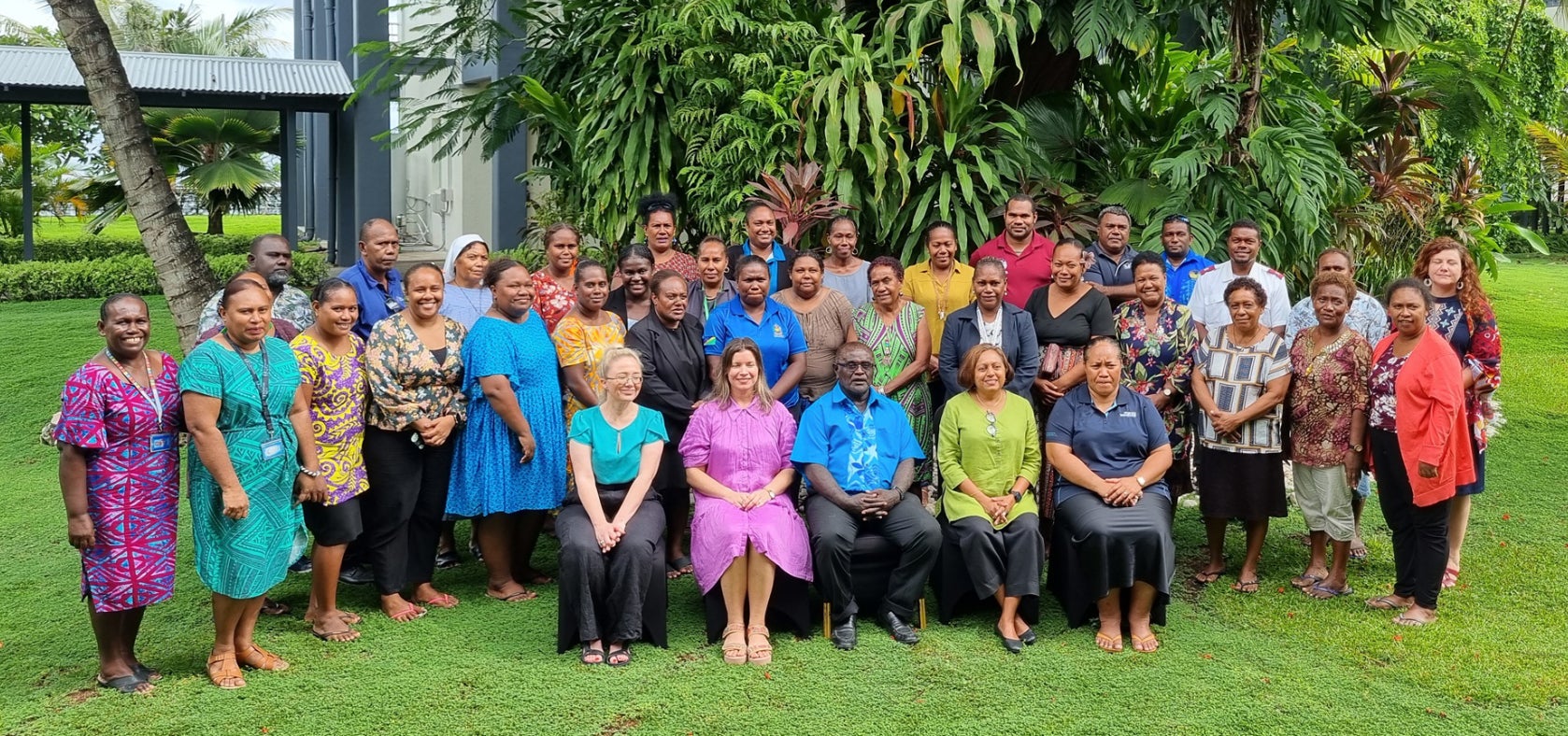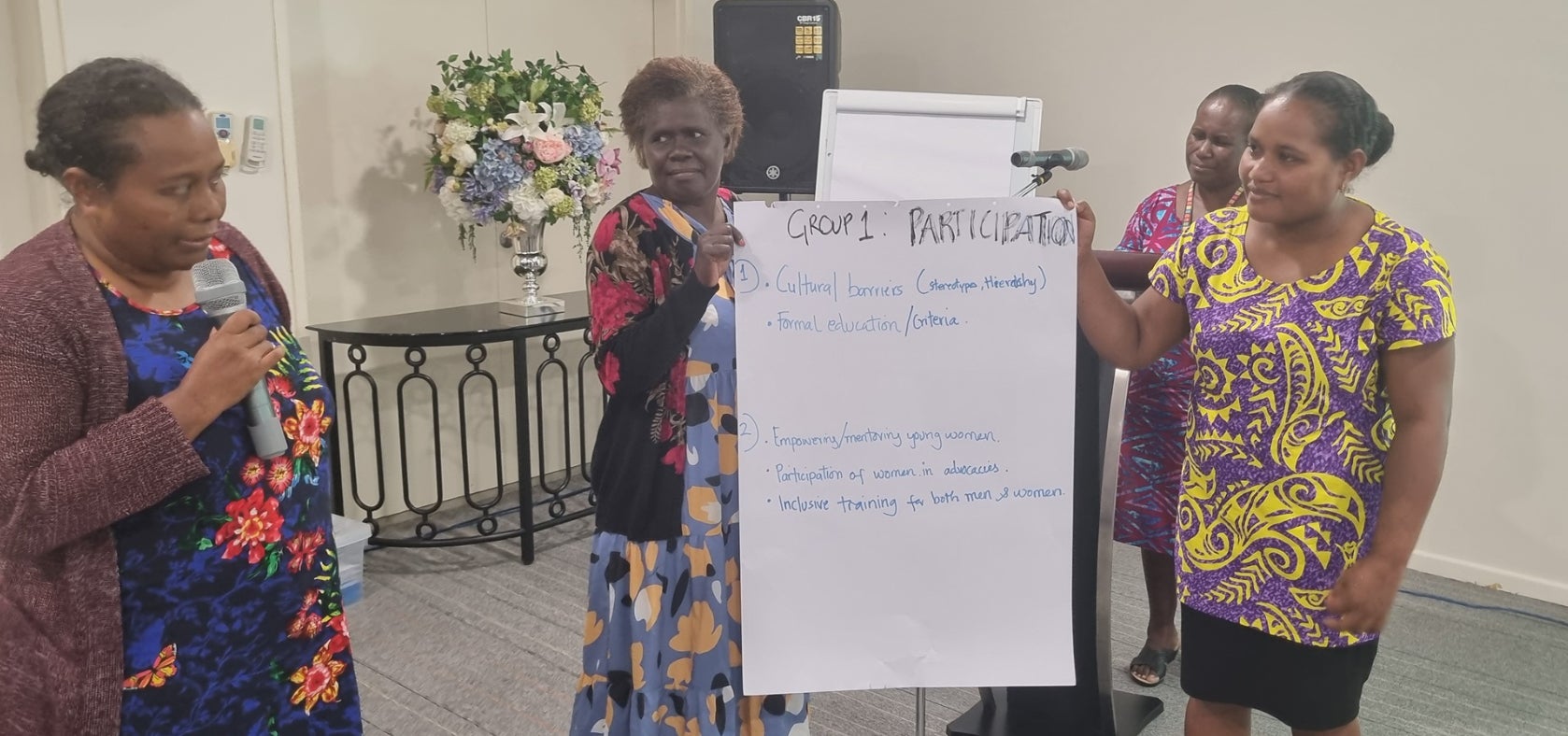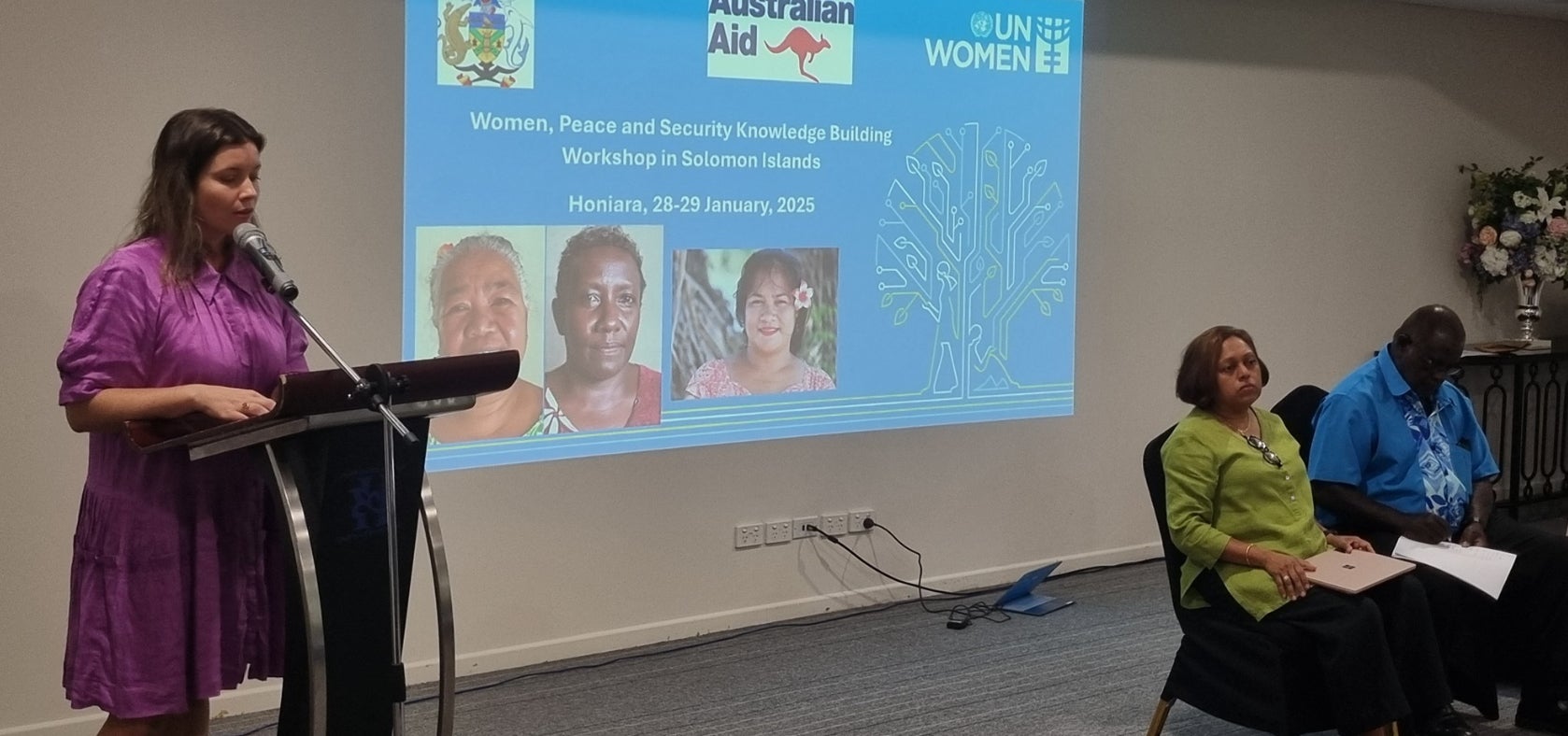Solomon Islands hosts knowledge-building workshop on women, peace and security
Date:
The Solomon Islands’ Ministry of Women, Youth, Children and Family Affairs (MWYCFA) has convened a pivotal workshop on women, peace and security in Honiara, in partnership with UN Women.
Held on 28-29 January 2025, the event brought together more than 50 participants from various ministries and civil society organizations.
The Women, Peace and Security (WPS) agenda is an established global framework aimed at achieving the full and equal representation and participation of women in all levels of peace processes and security efforts.
The workshop aimed to support the development of a robust second edition of the country’s National Action Plan (NAP) on WPS.
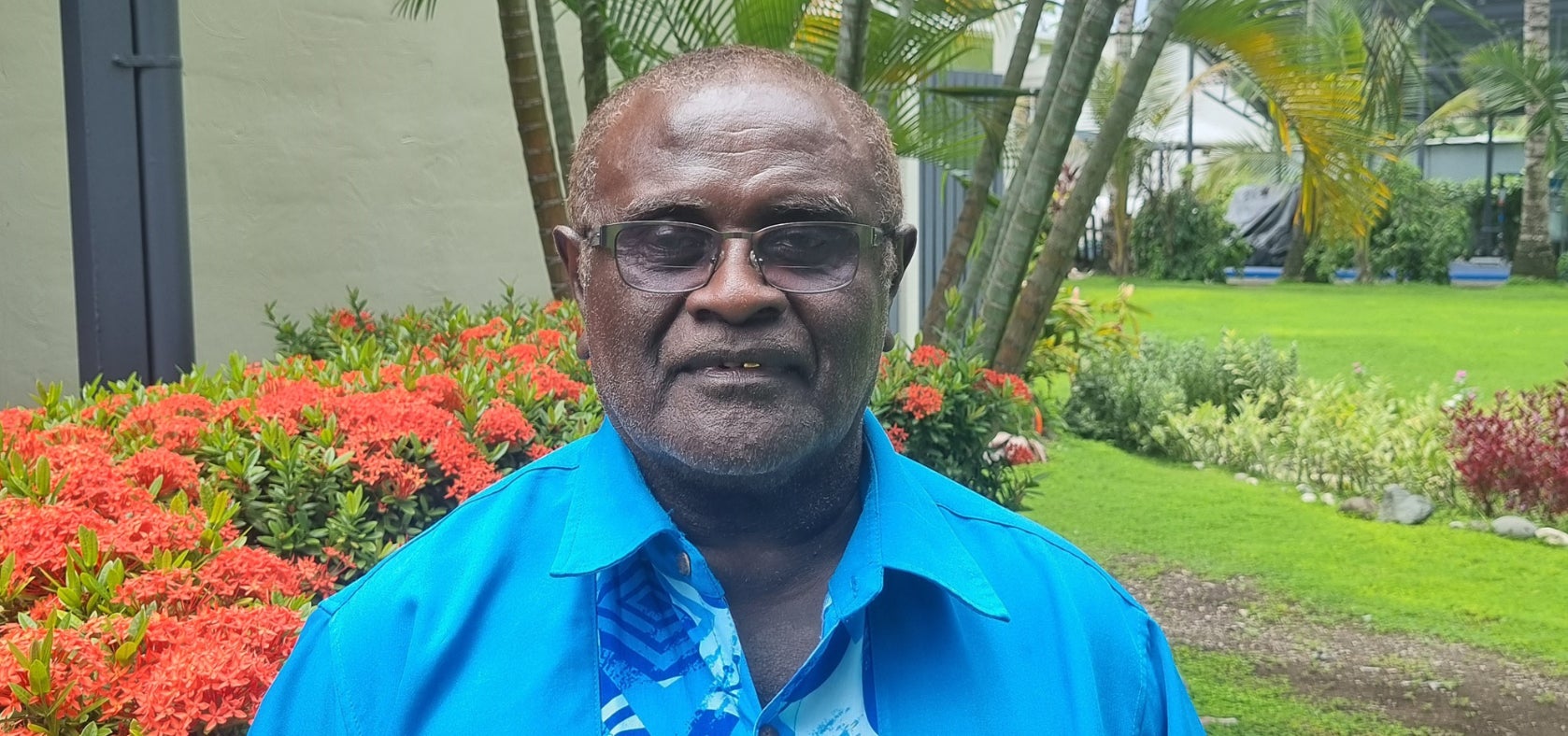
Dr Cedric Alependava, MWYCFA Permanent Secretary, emphasized: "This workshop will empower us to develop a second edition of the National Action Plan on Women, Peace and Security that is both comprehensive and inclusive, while also addressing emerging threats such as the impact of climate change on our communities and the growing risks of online harm”.
During the two-day event, participants engaged in discussions about emerging and non-traditional WPS issues, such as climate change, digital security and the evolving role of women in peacebuilding efforts.
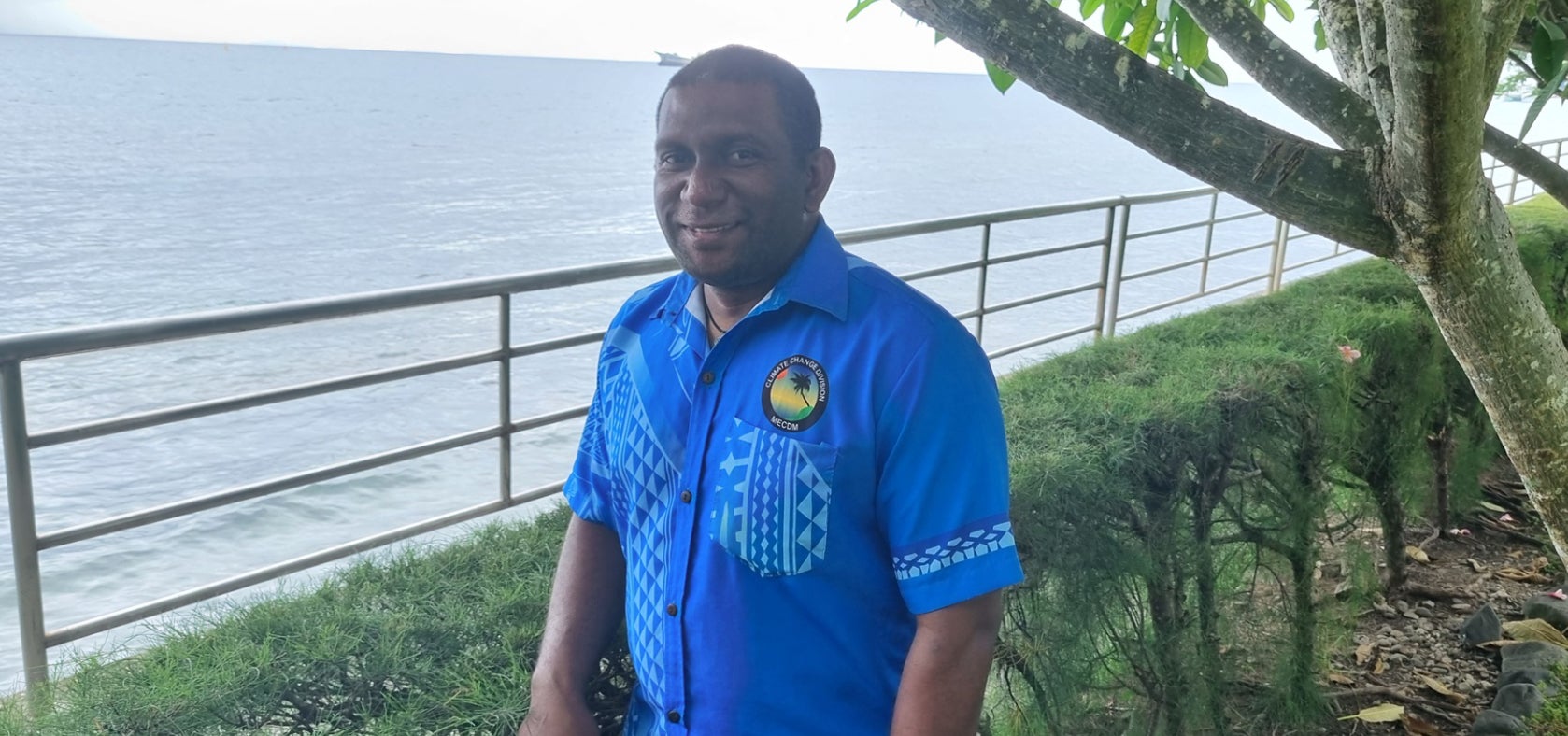
“In the Solomon Islands, statistically, women are more affected by climate change, but they are not merely victims; they are the strongest agents of change,” said Marlchom Zion Row, Principal Resilience Officer, Climate Change Division, Solomon Islands’ Ministry of Environment.
“Women are at the heart of resilience. If we fail to make the right decisions who will be affected? Your grandmother, your children, your relatives with a disability will bear the greatest burden. Together, we can promote peace, strengthen resilience and ensure that no one is left behind," he noted.
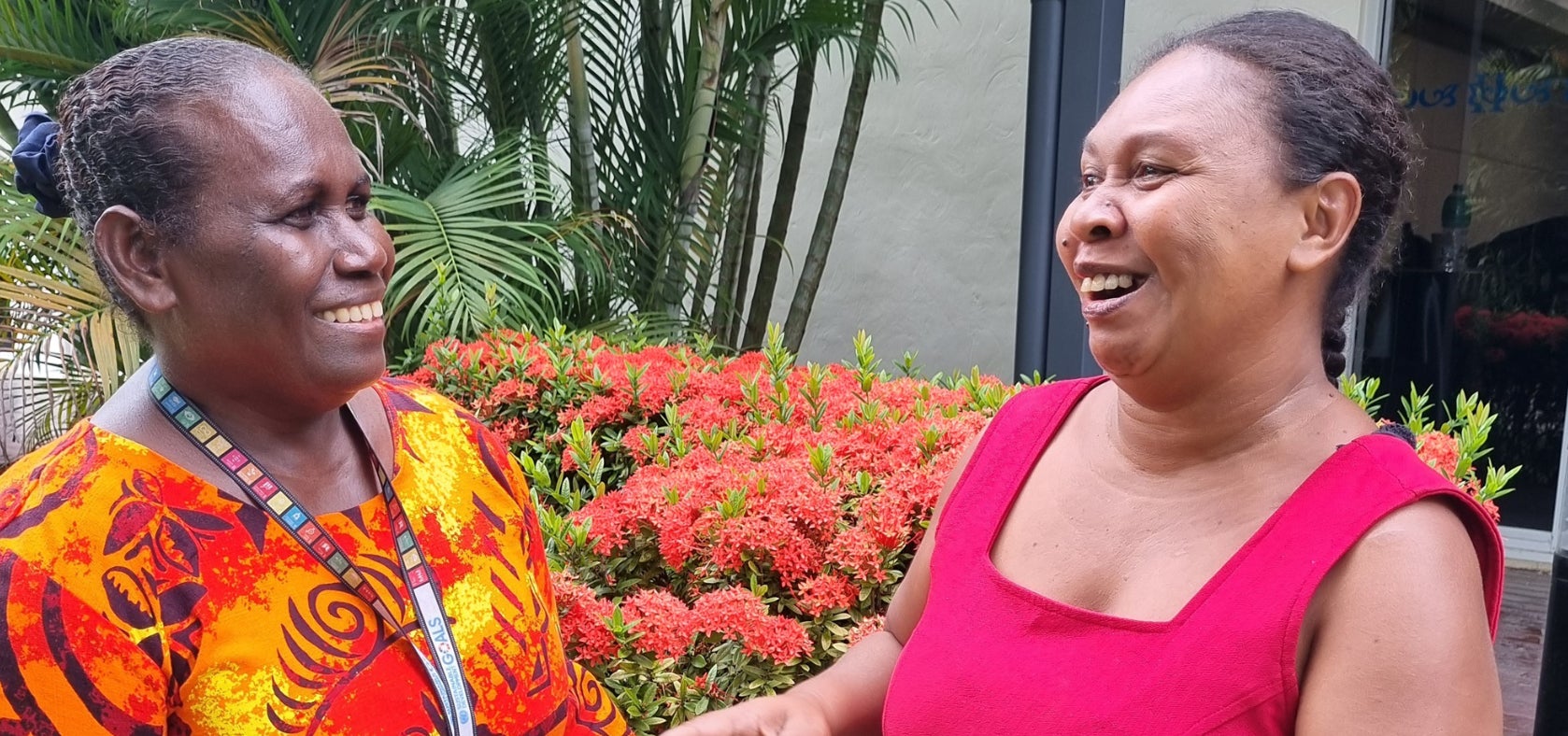
The workshop also highlighted critical aspects of a comprehensive and effective NAP such as inclusion and diversity, intersectionality, and the importance of ensuring that no one is left behind in implementing the WPS agenda.
Diana Ma’ahoro, President of the Disability and Women’s Empowerment Association, underscored the need for a fully inclusive approach.
"Inclusion is not an option; it is a necessity,” said Ms. Ma’ahoro. “If we want sustainable peace and security, then our National Action Plan must embrace the full diversity of our society. We need to discuss accessibility for women with disability, who are often left out of decision-making processes.”
One of the key takeaways from the workshop was the importance of ensuring adequate and consistent funding, and putting in place a robust Monitoring, Evaluation, Accountability and Learning plan for implementing the NAP.
Participants stressed that a well-budgeted plan with clear mechanisms for tracking progress would ensure the success and sustainability of the WPS agenda in the Solomon Islands.
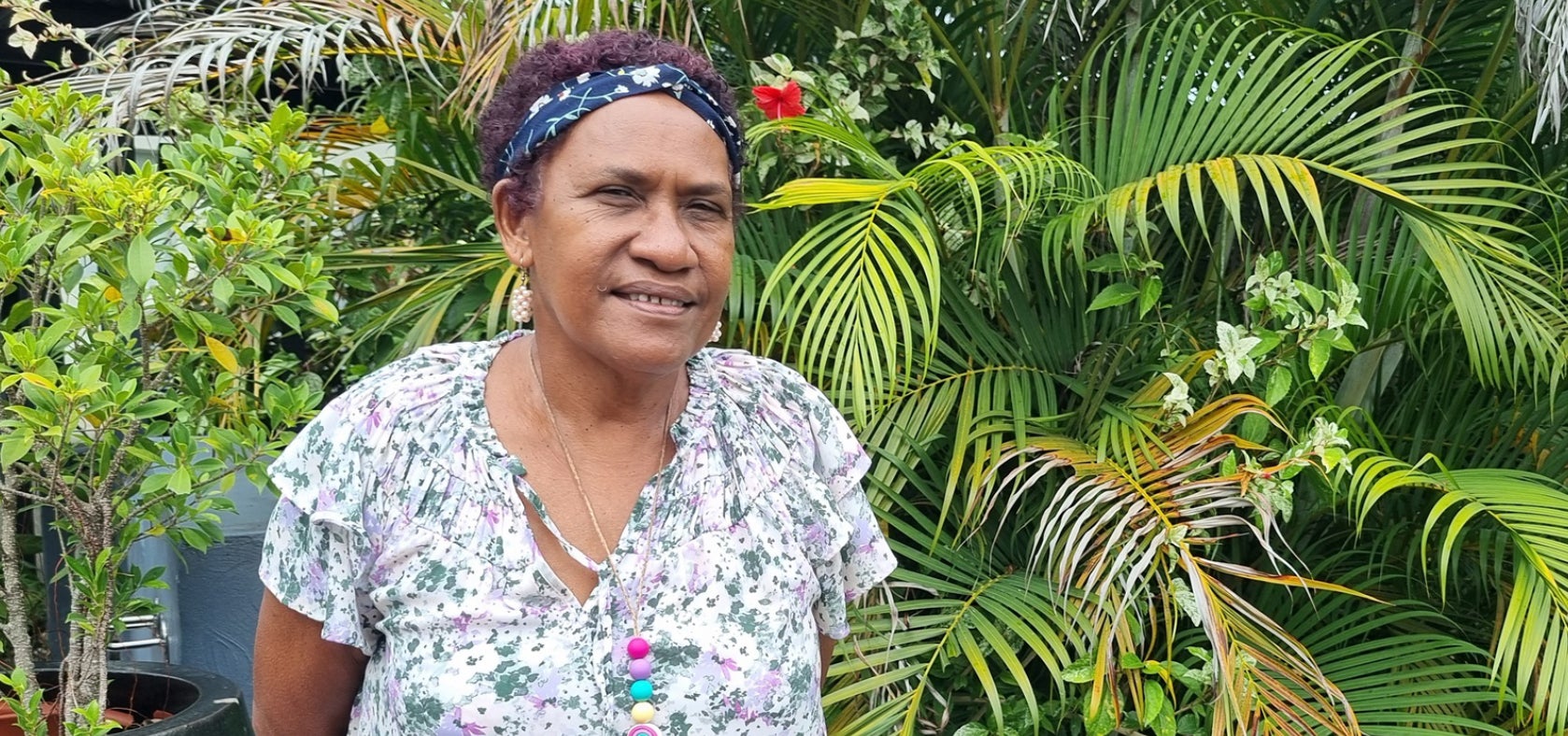
“For our National Action Plan on Women, Peace and Security to be truly effective, we must establish a strong, well-resourced monitoring and evaluation framework. Sustainable peace requires more than just a plan—it demands consistent funding, clear accountability mechanisms, and a commitment to tracking progress at every stage,” said Afu Billy, President, Solomon Islands National Council of Women.
Looking ahead, the Solomon Islands Government plans to conduct further consultations at the provincial level before finalizing the second edition of the NAP.
These consultations will allow for the broader community to provide input, ideas and solutions, and ensure that the final NAP is both locally relevant, and aligned regionally and globally.
The work on the WPS agenda in the Solomon Islands has received generous support from the Government of Australia, further underscoring the importance of international commitment to advance gender equality and peacebuilding efforts in the Pacific region.
See also:
